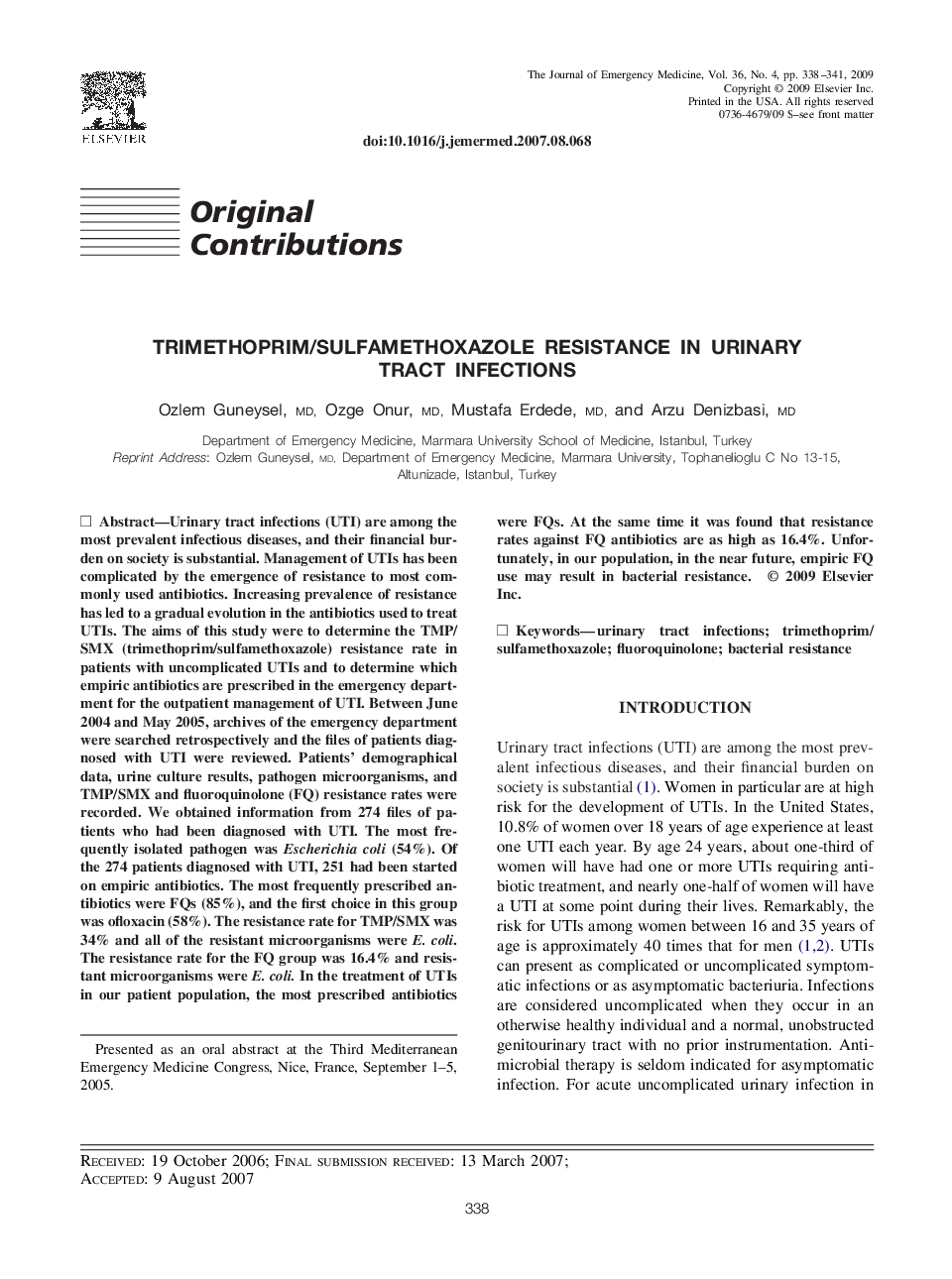| کد مقاله | کد نشریه | سال انتشار | مقاله انگلیسی | نسخه تمام متن |
|---|---|---|---|---|
| 3249325 | 1589193 | 2009 | 4 صفحه PDF | دانلود رایگان |

Urinary tract infections (UTI) are among the most prevalent infectious diseases, and their financial burden on society is substantial. Management of UTIs has been complicated by the emergence of resistance to most commonly used antibiotics. Increasing prevalence of resistance has led to a gradual evolution in the antibiotics used to treat UTIs. The aims of this study were to determine the TMP/SMX (trimethoprim/sulfamethoxazole) resistance rate in patients with uncomplicated UTIs and to determine which empiric antibiotics are prescribed in the emergency department for the outpatient management of UTI. Between June 2004 and May 2005, archives of the emergency department were searched retrospectively and the files of patients diagnosed with UTI were reviewed. Patients' demographical data, urine culture results, pathogen microorganisms, and TMP/SMX and fluoroquinolone (FQ) resistance rates were recorded. We obtained information from 274 files of patients who had been diagnosed with UTI. The most frequently isolated pathogen was Escherichia coli (54%). Of the 274 patients diagnosed with UTI, 251 had been started on empiric antibiotics. The most frequently prescribed antibiotics were FQs (85%), and the first choice in this group was ofloxacin (58%). The resistance rate for TMP/SMX was 34% and all of the resistant microorganisms were E. coli. The resistance rate for the FQ group was 16.4% and resistant microorganisms were E. coli. In the treatment of UTIs in our patient population, the most prescribed antibiotics were FQs. At the same time it was found that resistance rates against FQ antibiotics are as high as 16.4%. Unfortunately, in our population, in the near future, empiric FQ use may result in bacterial resistance.
Journal: The Journal of Emergency Medicine - Volume 36, Issue 4, May 2009, Pages 338–341